Banking Supervision Is Only the First Step Toward a Banking Union
Adelina Marini, December 19, 2012
 2012 will remain in history as the year when the EU made its first significant step during the crisis toward deepening of integration with the decision to move toward a single supervision for banks. The decision has been reached literally in the last minute and was welcomed by the EU leaders at their final summit in Brussels on December 13-14, as this web site wrote. But how is this decision accepted and what stands behind it? The European press review edition Presseurop quotes several big European dailies that assess in a different way the agreement.
2012 will remain in history as the year when the EU made its first significant step during the crisis toward deepening of integration with the decision to move toward a single supervision for banks. The decision has been reached literally in the last minute and was welcomed by the EU leaders at their final summit in Brussels on December 13-14, as this web site wrote. But how is this decision accepted and what stands behind it? The European press review edition Presseurop quotes several big European dailies that assess in a different way the agreement.
According to the Dutch NRC Handelsblad, the agreement seems big in scale but in fact it is not enough. "Coming four years after the start of the subprime crisis, it's disappointing", the newspaper believes. It especially regrets that a large part of the 6 thousand European banks will remain a responsibility for the national supervisors and hence will depend on mutual trust between banks, who have proved in the past they are much more inconsistent than we thought. The daily gives Iceland as an example, which decided to leave several banks to fail, thus causing many depositors (mainly from the Netherlands and Britain) to be compensated for their losses by their governments, and also the Fortis affair. In these examples, the newspaper writes, national interests prevailed over the general interest. "Only a centralised monitoring authority for all banks can combat that", NRC Handelsblad deems.
In Germany, however, because of which there was a real danger an agreement not to be reached, reserves remain. The influential financial daily Frankfurter Allgemeine Zeitung (FAZ) offers a number of arguments in support of its claim that the new supervision is bad news. The decision for the supervision comes at a time when eurozone banks own three times more debt than the member states. According to FAZ, the main problem is the omnipotence conferred to the European Central Bank - an unelected institution. "While joint supervision of European banks makes sense, placing that supervisory authority under the roof of the ECB is very far from being a sound idea. Until now, the sole obligation of the ECB was to ensure price stability. Henceforth, the supervisory role will force it to live with a conflict of objectives. How will it decide if inflation requires an increase in interest rates, when that is precisely what may bring down the banks?", the newspaper asks.
Spain, for its part, is indignant with Germany's diktat. According to one of the most circulating Spanish newspapers, El Pais, the decision, imposed by Germany, will fracture the European financial market into two major blocks: big institutions under the ECB supervision and those with assets less than 30 billion euros will be left to the supervision of the national governments. "The objective of the triumphal proposal of [Finance Minister Wolfgang] Schäuble is to hide the bleak situation of the German savings banks and the banks of the German Länder. The pretext used to achieve this was to suggest putting only those banks that would present a systemic risk to Europe under the supervision of the ECB. The reality, however, as shown by the case of Spain, is that smaller institutions are also capable of injecting toxins into the national banking system".
Spanish Finance Minister Luis De Guindos defended his country's position precisely with this argument, insisting the single supervision to cover all the banks, not only certain institutions.
The pro-European analytical centre Open Europe believes that the decision represents a huge step toward deeper integration and that politically the deal is significant in two ways: first, it gives Germany a political cover to provide more cash, thus moving the eurozone toward recapitalisation of banks of the likes of the Spanish ones through the European Stability Mechanism (ESM); second, it creates a very important precedent about how will Britain swallow deeper integration in the euro area while in the same time together with the other non-euro countries that will not participate in the supervision will keep equal footing in the single market. That, according to the think-tank, is ensured mainly by the strongly opposed voting mechanism in the supervisory body.
"For the first time, the EU has acknowledged the need for two-tier – and tailored – voting rights, depending on the individual countries’ status either inside or outside the euro. It illustrates that the UK and other Eurozone 'outs' aren’t faced with an 'all or nothing' choice, there is a road between joining the euro and ‘isolation’". Open Europe explains very well the voting system pointing out that the agreement requires a majority between euro- and non-euro countries, the so called double majority. When the European Banking Authority makes decisions by qualified majority (about technical standards for instance), it will need to ensure a simple majority of countries participating in the banking union and a majority of countries that don't, so that the decision can be adopted.
Besides, Open Europe notes, that there are safeguards against discrimination because the single supervision explicitly prohibits the ECB from discriminating non-euro countries against euro countries, which the analysts from the think-tank believe will keep the single market intact.
The single banks supervision was an issue at the hearing of the ECB chief,  Mario Draghi, in the economic committee of the Europarliament. The bank, ultimately, will get the leading role, according to the agreement, to supervise systemic banks under criteria defining their impact on the economy (GDP share, minimum threshold for assets). According to Mr Draghi, the single market will restore inter-banking lending and trans-border credit flows which will have a sensible impact on the real economy. And in a combination with the expected direct recapitalisation of banks through the eurozone permanent bailout fund, as well as the plans for a single resolution mechanism for banks, the single supervision will succeed in breaking the vicious circle between the sovereign and banks.
Mario Draghi, in the economic committee of the Europarliament. The bank, ultimately, will get the leading role, according to the agreement, to supervise systemic banks under criteria defining their impact on the economy (GDP share, minimum threshold for assets). According to Mr Draghi, the single market will restore inter-banking lending and trans-border credit flows which will have a sensible impact on the real economy. And in a combination with the expected direct recapitalisation of banks through the eurozone permanent bailout fund, as well as the plans for a single resolution mechanism for banks, the single supervision will succeed in breaking the vicious circle between the sovereign and banks.
Regarding Germany's concerns, which insisted (together with Finland and the Netherlands) for guarantees that the ECB will build a "Chinese wall" (in the words of Wolfgang Schäuble) between the monetary and supervisory policy, Mario Draghi said that the separation between the two will be in the form of an independent analysis and recommendations for the usage of appropriate instruments for either of the two functions. He pointed out, however, that as important as the separation of monetary policy from supervision might be, it is a fact that stronger supervision facilitates the conduct of monetary policy. He also provided examples.
First, when there is no financial stability, the usual tools for monetary policy like changes in the short-term interest rates lose some of their potency. But effective supervision contributes for a stable financial system which can only benefit from the smooth transmission of monetary policy. Second, effective financial supervision can counteract excessive leverage and credit expansion that generate inflationary pressures in the long-term. In other words, via facilitating the build-up of macroeconomic imbalances, supervision can foster a stable macroeconomic environment with stable prices (which is the main mandate of the ECB).
In October was issued a publication containing opinions of various experts about the pluses and minuses of the supervisory mechanism and the banking union in general, ordered by the Economic and Monetary Affairs Committee of the European Parliament. According to Anne Sibert with the London University and the Centre for Economic Policy Research, the single supervision will put an end to highly controversial practises. For example, with the argument of defending prudential regulation national supervisors in core eurozone countries have imposed de facto control on interbank flows of funds from the core to the periphery. Anne Sibert believes that the banking union with the ECB at the helm will put an end to such practises.
Guillermo De La Dehesa provides a very interesting analysis for the European Parliament. He is a Chairman of the Centre for Economic Policy Research. He focuses mainly on the argument for more common European supervision and less national - a dispute that had a central role during the negotiations in the EU. First and very important is that with the previous banking crisis most of the banks that failed were not "too big to fail". Those were IKB, Hypo Real Estate, West LB in Germany, Fortis and Dexia in Belgium, Northern Rock in Britain. The Spanish Bankia also falls in that category of "not too big to fail".
Second and not less important argument of the analyst is that the rules for capital adequacy Basel II (and later Basel III) are applied with broad different efforts by the different supervisors in the eurozone, thus helping some national banks to become more competitive than others. A single supervisor would prevent that. The third reason is that 75% of the monetary transmission mechanism of the monetary policy of the ECB is done through banks and only 25% through financial markets. To compare, with Fed the situation is precisely the opposite. So, banking supervision turns into a key factor for monetary policy as well, which is also in response to Germany's concern about the clear separation between monetary policy and supervision.
And one more issue that dominated the negotiations - is the ECB capable of supervising all the over 6 thousand banks in the euro area? ECB in the very beginning said that this is beyond its capabilities because it does not have "an army of supervisors", as Vitor Constancio, the bank's vice president, said at the decisive Ecofin meeting. But Guillermo De La Dehesa believes that single supervision over all the 6,119 banks is not impossible. These banks are distributed as follows (by number and share of eurozone GDP):
- 1885 of them are based in Germany which makes 30.8% of all the banks and the eurozone GDP share is 27.06%;
- 759 are in Austria with GDP share of 2.77%;
- 732 in Italy (17.85% of GDP);
- 652 in France (20.32% of GDP);
- 478 in Ireland (1.58% of GDP);
- 326 in Spain (11.87% of GDP);
- 315 in Finland (1.79% of GDP);
- 281 in the Netherlands (5.69% of GDP);
- 154 in Portugal (2.5% of GDP);
- 140 in Luxembourg (0.25% of GDP);
- 139 in Cyprus (0.19% of GDP);
- 107 in Belgium (3.46% of GDP);
- 53 in Greece (2.80% of GDP);
- 30 in Slovakia (0.99%) of GDP);
- 26 in Malta (0.09%);
 - 25 in Slovenia (0.47% of GDP);
- 25 in Slovenia (0.47% of GDP);
- 16 in Estonia (0.25% of GDP).
The banks' weight in terms of assets, however, as well as a in terms of a share of the overall GDP is much bigger. For example, in Cyprus the total assets of the two biggest banks amount to 488% of the national GDP; ING, Rabobank and ABN Amro in the Netherlands - 327% of GDP; Dexia and KBC in Belgium - 233% of GDP; Santander, BVA and Bankia are with a size of 198% of the GDP of Spain; in France BNP, Credit Agricole and Societé Generale amount to 235% of GDP; Bank of Ireland and Allied Irish Banks, that caused the crisis in the country and because of which the country was forced to ask for a bailout, are 184% of the Irish gross domestic product; Caixa Geral, BCP and Espírito Santo of Portugal - 177% of the country's GDP; Erste and Raiffeisen in Austria - 118%; in Germany Deutsche and Commerzbank - 108% of the GDP; Valletta in Malta - 104%; Unicredit and Intesa Sanpaolo in Italy - 97%; the Luxembourgian BCEE - 94% of GDP; in Greece NBG and EFG Eurobank - 90%.
The analyst points out that the bigger share of all the 6,119 credit institutions in the euro area are not "too big" to fall under the direct supervision of the ECB and the national banks of the member states some of which have been doing this for decades. The ECB should rely on the 17 national banks for its daily supervisory functions on the basis of appropriate rules and guidelines. In case where in a eurozone member state the supervisor is not the central bank, then more time will be needed so that the bank can assume the supervisory functions effectively. So, Guillermo De La Dehesa concludes, those countries that have the biggest credit institutions and those where the supervision is not conducted by the central bank, are those that are most reluctant to transfer the supervisory role to the ECB and the national bank.
According to the agreement, the single supervisory mechanism should be operable as of the 1st of March 2014 and in 2013 the specific rules will be developed. For now it is clear that only three of all the 27 member states of the EU will not participate - Britain, Sweden and the Czech Republic.
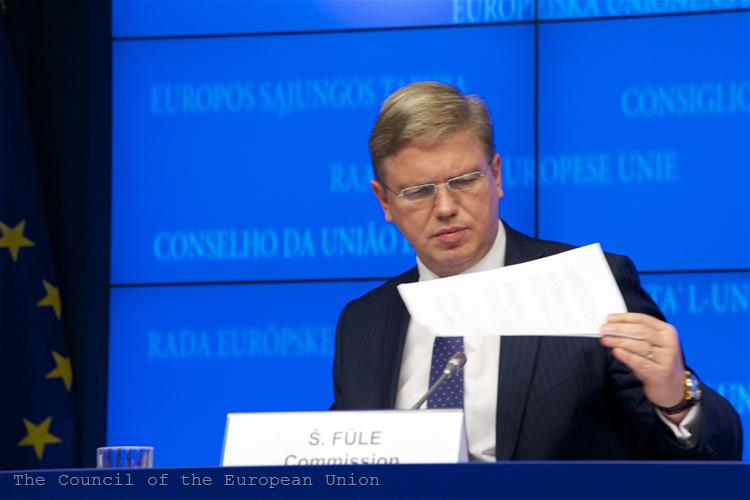 | © The Council of the European Union
| © The Council of the European Union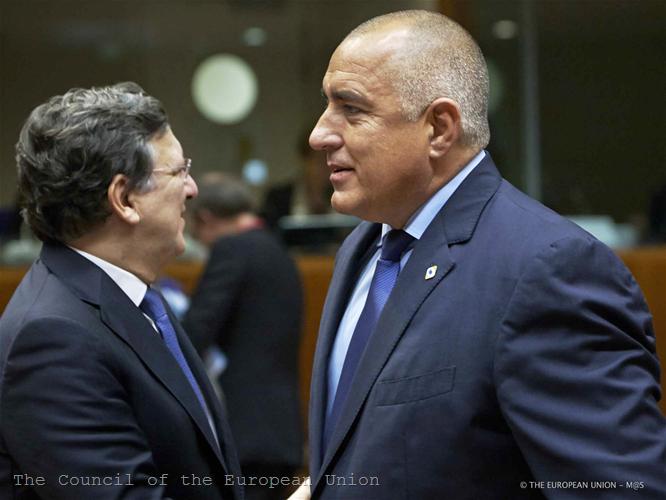 | © The Council of the European Union
| © The Council of the European Union | © European Parliament
| © European Parliament | © The Council of the European Union
| © The Council of the European Union | © European Parliament
| © European Parliament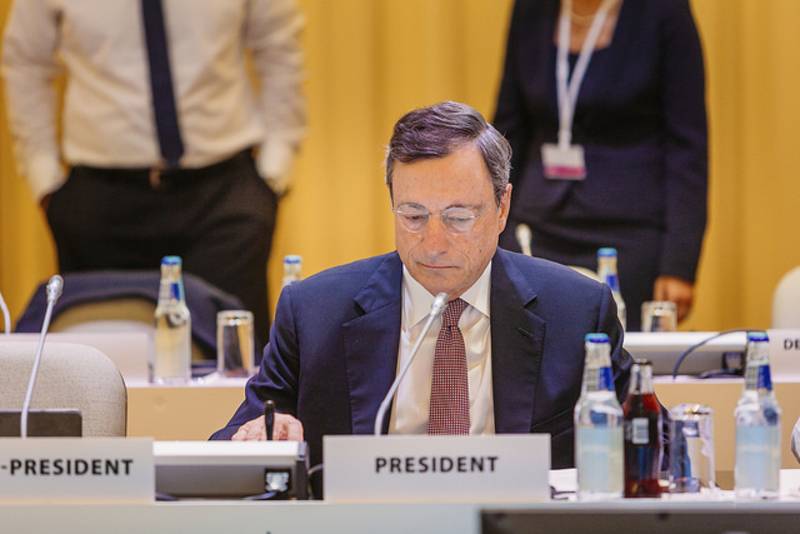 Mario Draghi | © ECB
Mario Draghi | © ECB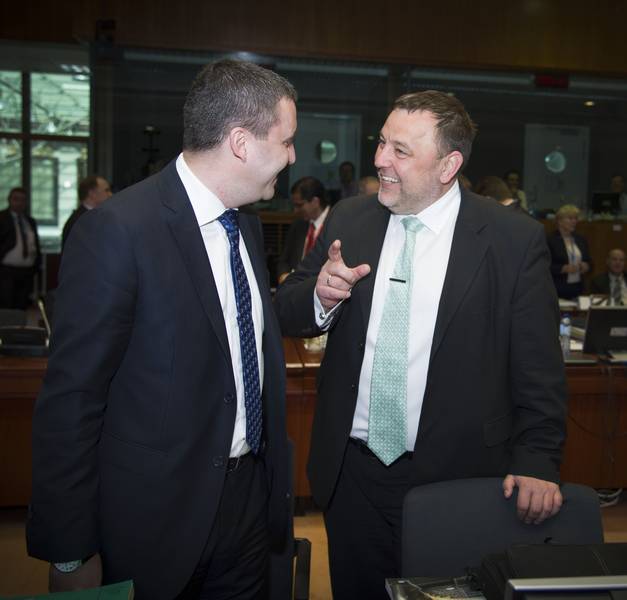 Vladislav Goranov, Sven Sester | © Council of the EU
Vladislav Goranov, Sven Sester | © Council of the EU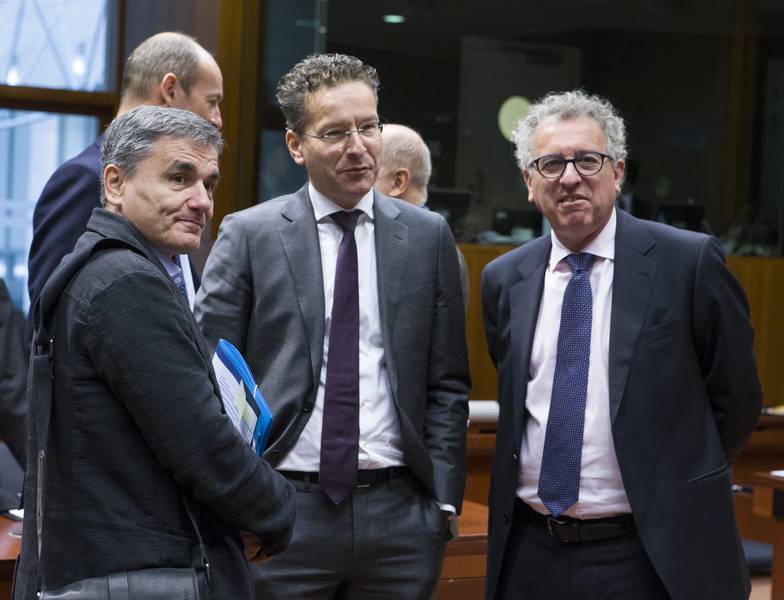 Tsakalotos, Djisselbloem, Gramegna | © Council of the EU
Tsakalotos, Djisselbloem, Gramegna | © Council of the EU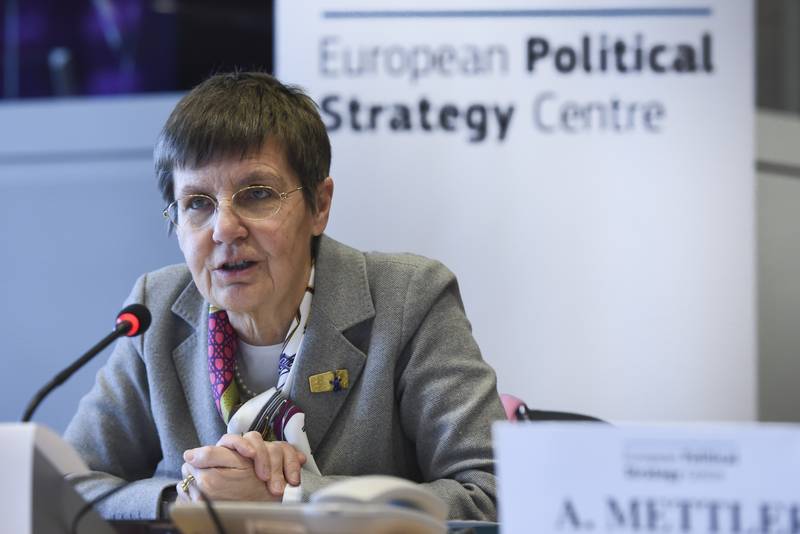 Elke Koenig | © European Commission
Elke Koenig | © European Commission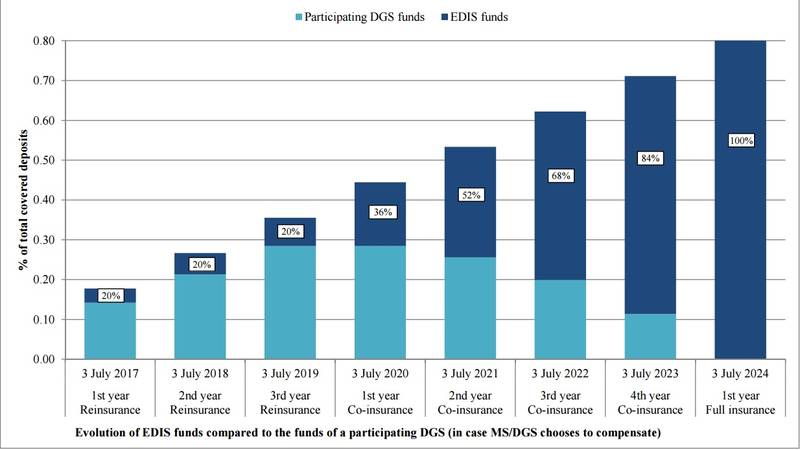 | © European Commission
| © European Commission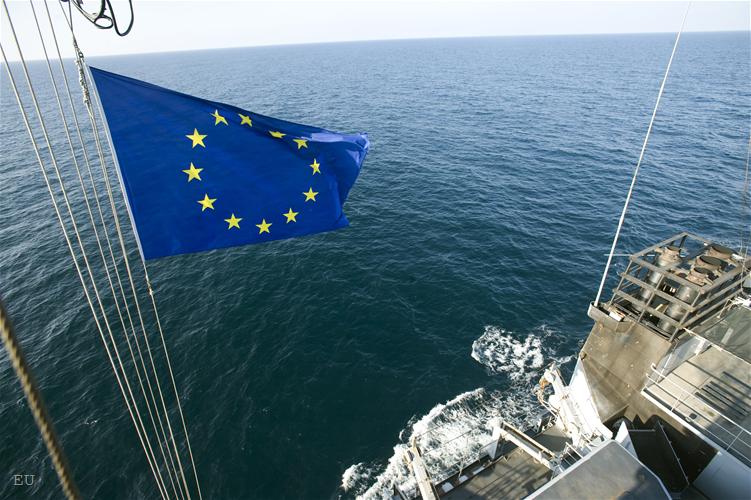 | © EU
| © EU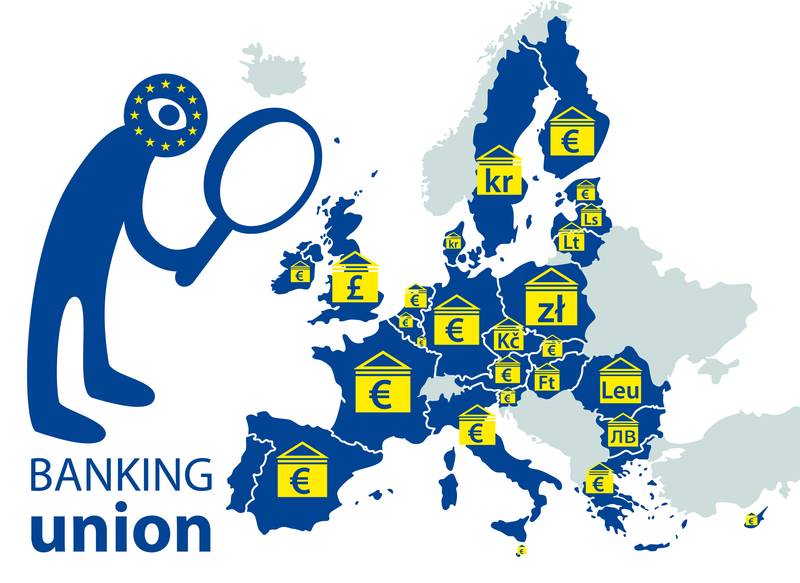 | © European Parliament
| © European Parliament